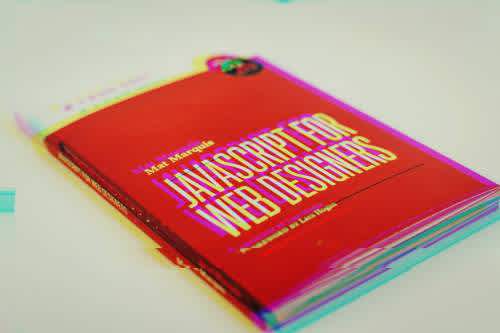Technical Interviews are always nerve-wracking, especially when you have high expectations of getting into your dream workplace. However, with the proper guidance and preparation, there is a high possibility of conquering your next senior Java interview.
This article will guide you toward preparing for your next senior Java developer interview to achieve top results.
“Choose a job you love, and you will never have to work a day in your life” — Quote by Confucius

The senior Java developer role might call in slightly different terms such as Senior Java Application Developer, Senior Java Backend Developer, Senior Software Engineer Java.
However, with my industry experiences, I can identify four main evaluation categories during an interview. They are;
Problem Solving Skills
Learnability
Technical Experience
Attitude and Team Skills
Let’s look deep into these categories and answer some of the common questions in these interviews.
1. Problem-Solving Skills
If you are a Senior Java Developer, your problem-solving skills should reflect your experience in Java.
This is one of the core skills which makes you stand out from junior developers. Therefore, expect at least two to three questions covering this category during the Java interview.
Question Type 1: Basic Java Skills on Arrays
Arrays-related interview questions are very common since it is a fundamental data structure. In addition, knowing array operations is very important because Java provides a separate Array class with in-built support for array operations as well.
* Find the maximum and minimum number in an unsorted array. * Remove duplicates from the given number array.
Likewise, you can expect simple challenges at the beginning of the interview.
Tip: Always familiar with the Java Arrays class. Most of these array manipulations can be done with minimum lines of code. The interviewer will be interested to know your awareness of these.
e.g.: Arrays.sort()
Question Type 2: Data Structures and Algorithm
If you successfully answer the basic problem-solving questions, next you can expect bit more advanced questions such as:
* Explain how to print all the leaves in a given binary tree? * Write a Java code implementing a Stack.
Tip: Don’t forget to refresh your knowledge on the usage of Data Structures and Algorithms together with Recursion.
e.g.: Implementing Stack, Queue, Linked List types and other data structures
Question Type 3: Common Computational Problems
There are other types of questions that you can expect. They are the popular challenges like:
* Solve the Tower of Hanoi problem with Java. * Print the Fibonacci Series from zero to hundred. * Write a code snippet to check a given number is a palindrome.
These types of challenges are to check your IQ and general computational problem-solving skills. I suggest you practice at least a few of these before the interview.
2. Learnability
If you are applying for a senior or experienced Java role, the interviewer will be very curious to evaluate your learnability skills. Therefore, you are expected to showcase your experiences in adopting new technologies, frameworks, and tools for project-specific requirements in a short period of time.
Question Type 4: Project Experience
How to prepare? The starting point would be your project experiences mentioned in your CV/Resume.
The interviewer will use your CV/Resume to formulate some questions such as:
* Did you use Grafana Dashboard in your previous project? * Can you tell us about the configurations you did to make it work?
These types of questions give you an excellent opportunity to elaborate more on showcasing your learnability skills. You can explain the answer in chronological order.
Tip: Start with how you got to know the tool, and how you did the Proof of Concept (POC), and then the approach you took to apply it in your project. Don’t forget to mention the challenges you faced and your learning curve to overcome those as well.
Question Type 5: Are You Willing to Learn a New Technology?
Imagine a Java Framework called X released recently. You have zero hands-on experience with it yet. Still, your interviewer might ask a question like:
“If you are to develop a project with framework X, are you up to the challenge? tell us how you get started?”
These questions are tricky! Personally, I don’t recommend you to say, “Yes, I can!” instantly. You may take a moment and reflect on a similar framework that you are already aware of. Then, you can try to express your views on that known framework first and its limitations. After that, you can give an answer like,
“I would love to try it in a POC first. But then, I will refer to its documentation and set it up on my own to get familiar first. After that, I would love to try it out in the actual project”.
However, convey the idea that you are willing to take the challenge and up-to-date person in the latest technology curve. I recommend you to subscribe and keep in touch with honeypot for the latest stories!
3. Technical Experience
It is a pre-requisite to have at least 3+ years of industry experience when applying for a senior position, which indirectly implies that you have a considerable amount of technical expertise behind you. To ensure you have gained enough tech exposure, your interviewer will throw you some technical questions, probably more focused on advanced Java!
I suggest you practice the below questions and other related domain areas before your next tech interview.
* What is the difference between Java Error and an Exception? * What are the Java Secure Coding Practices you are aware of? * Can you re-write this business logic using Java Lambda/Streams? * What makes you excited about the newest Java release?
Apart from these direct Java tech and awareness questions, there is a possibility to check your Java debugging and application server-related experiences.
Imagine your Java Enterprise Application is always crashing, and most of the cases, your users complaint it is down. What are your actions toward investigating the issue?
I suggest you need to have a good understanding on,
Gradle and Maven usages with Java
How Java Virtual Machine (JVM) works
How to analyze a Heap Dump Report
Java Actuator endpoints and their usages
Latest Java and Spring Boot (and other Framework) releases and their features
These additional areas will be helpful to showcase your skills further to the interviewer.
The next crucial aspect you need to prepare is Unit Testing!
As a senior developer, you are supposed to have a high interest in writing unit tests and sometimes follow Test-Driven Development (TDD) together with hands-on skills with JUnit, Spock, or other unit testing frameworks. So expect questions that will verify your awareness of TDD and your experience in Java application testing strategies.
4. Attitude and Team Skills
Senior developer roles are mostly supposed to lead teams. Therefore your senior job role itself offers a responsibility to be an exemplary developer to others.
During the interview, there can be a question related to,
Agile or any other software process management methodologies
Your experiences related to working with distributed teams
Working with different people with different ideas, managing conflicts, and your contributions to building self-motivated teams
Working under tight deadlines and schedules
Additional Tips
There are some additional steps you can take to reflect as an outstanding senior developer.
Maintain a personal website or a portfolio
Update your LinkedIn profile with a featured section, add certifications, and include previous work experiences
Attempt LinkedIn Java skill quiz
Active GitHub, Stack overflow profiles will be a plus
There are no hard and fast rules or guidelines for these. Still, you need to find ways of mentioning this additional information to your interviewer. For example, you may include these in your CV/resume, and you can mention these during the interview as well.
Use your creativity and experiences to develop more ideas and be brave enough to try them out!
Final Thoughts
You can’t easily predict what questions will appear at the interview. It depends on the company, their projects as well as the expectations of the interview panel. Therefore, it is not realistic to practice all the possible scenarios. Still, as we discussed in this article, you can focus your interview preparation under the above-suggested categories for better results.
Create your unique way of adding icing to the interview with some additional inputs as well. It is essential to be creative and smart enough to stand out from the rest. Practice makes you perfect, and it surely will help you to get into your dream workplace! I wish you all the best! 👏👏👏


